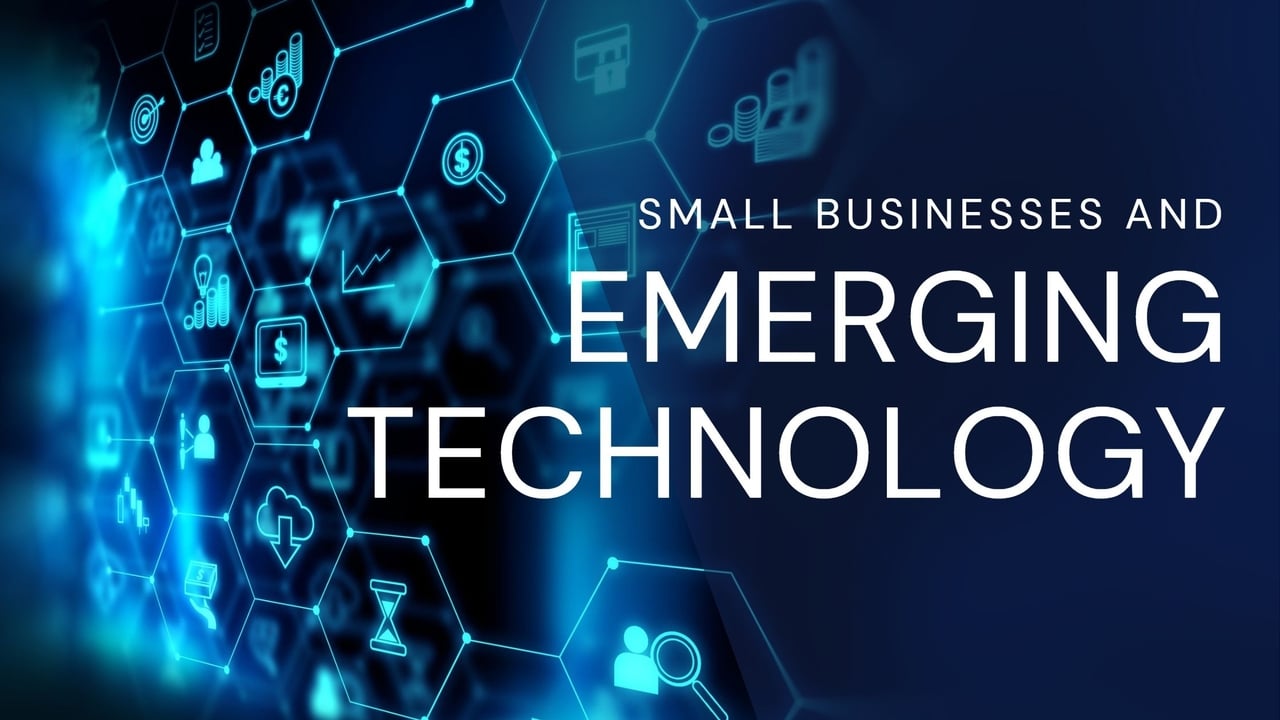Like the industrial revolution of the 18th to 19th centuries, the tech revolution is set to change the world as we know it. The difference now is that this revolution is much more incremental. The worry is that you can’t take your eye off the ball for a second for fear of missing the next big opportunity! So what should small businesses be considering when it comes to emerging technology?
Don’t be scared of new technologies

From futuristic novels to Hollywood blockbusters, we have been apprehensive of what new technologies are capable of for quite some time. Although it is so easy to compare tech companies of today to the likes of Cyberdyne Systems, at least most of us have a good idea of what to look out for.
Of course, terminators aren’t what we’re really worried about with new technologies. It’s losing jobs to them! We as a society are quick to forget similar issues of the past occurring as a result of innovation, especially the new opportunities that came from them. There are many that can attest to computer software innovations being a main concern for clerical workers who were a huge portion of the work force at the time. With every industrial innovation that comes along there will inevitably be a threat of losing jobs. However, the sooner we embrace change, the less blind-sided we will be by it. It is important for small businesses to adapt and bend to these changes rather than break under the pressure of resisting it.
Cloud Computing
When cloud computing was first introduced, those who talked about the cloud sounded like their heads where in them. But now that the technology has caught up, cloud computing is a viable and more importantly cost effective solution for small businesses. The problems this technology solves are many such as expensive IT servers, bulky hardware and a swell of software bloating it all. Small businesses are now able to reduce their start-up cost and keep those costs down too. The benefits also extend to their customers with the opportunity to offer a much smoother experience. With all of the power coming from bigger and better super computers, cloud computing will become much more than simple file sharing and storage.
Virtual and augmented reality

Bringing virtual and augmented reality to the masses is a slow burner due to the high costs of developing such tech. But once readily available, it is predicted to be a game changer of future consumerism. The small implementations we have seen so far have garnered much attention from spinning retail items 360 degrees, visualising changes to your home with smart overlays and who can forget the mayhem of Pokémon Go! Where Small businesses will benefit most with this tech is the new dimension of story telling that can be added to their advertising.
The Internet of Things (IoT)
The Internet of Things is made up by a colossal amount of devices that connect with each other and exchange data over the internet or other networks. These can be anything from smart washing machines that can assess the weight of a load and set a wash cycle from a cloud of data, to cars with self driving technology or diagnostic and reporting cability, or a whole lot more.
These can often be technologies that have evolved to collect data remotely to allow you to analyse later on. For example, it is possible in a showroom to use smart technology to measure where and for how long people linger. This can give an insight into what products are popular, how you could lay the room out to maximise footflow and opportunities, and also proactively predict demand to manage stock levels.
As smart technology becomes more prevalent and affordable, the IoT becomes something worth investigating to see how it can help enhance your business.





